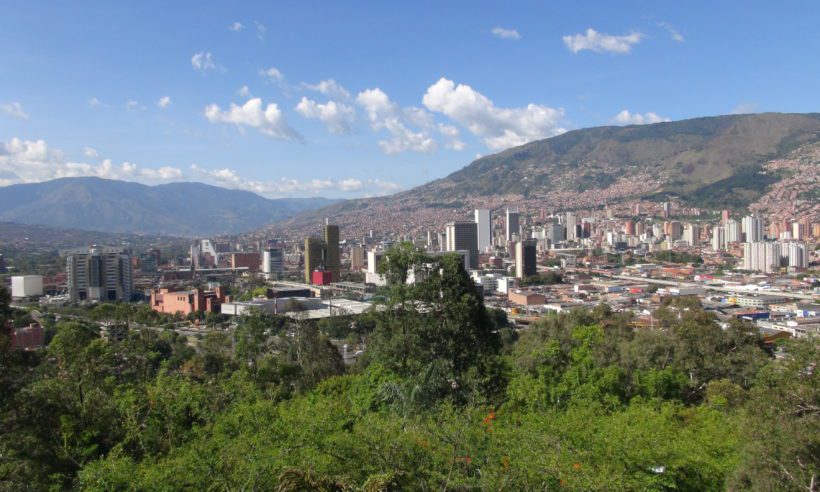The Management of Medellín’s Budget Continues to Come Under Scrutiny
Medellín’s budget amounted to $2.2 billion USD this year, but there remains a cloud of fog surrounding how the money is being managed. The flame of uncertainty was fueled this summer when Medellín’s popular flower festival, the Feria de las Flores, cut its budget just weeks before it began.
Photo: Medellín (Credit: Jared Wade)
Medellín Mayor Daniel Quintero and the city’s Secretary of Culture Álvaro Narváez said that the event required millions of massive additional funding from public utility Empresas Públicas de Medellín (EPM), a proposal that was rejected by the Medellín Council in a split vote on July 4.
And this has not been the only problem when it comes to public funding shortages.
Also in July, 290 teachers who serve children with disabilities in public schools were notified that their contracts with the Integral Attention Unit (UAI) would not be renewed due to budgetary problems. The teachers outlined their grievances in a letter to the mayor.
Metrosalud health workers also wrote a statement when the entity was at risk of running out of specialists in anesthesiology, orthopedics, and obstetrics and gynecology due to a debt that the entity had been accumulating for more than six months while claiming not to have enough money to pay.
Not even the national police have been spared. In the Medellín neighborhood of La Alpujarra, home to the mayor’s office, police demonstrated to demand more budget.
Skepticism Over Management of the City’s Funds

Daniel Quintero Calle, mayor of Medellín. (Credit: Jefbanguera)
Piedad Patricia Restrepo, spokeswoman for the Todos Por Medellín watchdog group and former director of the Medellín Cómo Vamos program, has criticized the management of the budget.
“The full picture tells us that revenues are higher than budgeted,” she said in an interview with Medellín newspaper El Colombiano. “Even the investment made between 2020 and 2022 also tells us that it is above what had been proposed in the development plan. That is, the administration has had enough resources to meet the goals established until 2022 in the development plan. This annual investment plan, up to 2022, spoke of a 108.2% compliance; that is, 8.2% more than what was initially proposed.”
Alfredo Ramos, councilman of the right-wing Democratic Center party, denounced that most of the investment has been made under inter-administrative contracts, which has concentrated resources in decentralized entities that are more difficult to monitor.
“Out of every 100 pesos in Medellín, this year 62 pesos have gone to inter-administrative contracts,” he said in public comments. “There are black holes there, with the ESU, the EDU, Metroparques, Plaza Mayor, Metrosalud, a lot of money goes there, where it is lost later with corruption, rigged contracts. That is the famous execution: they pass all the money to a decentralized entity and there they do whatever they want.”
There are other public affairs in which the accounts do not add up: the Secretariat of Communication increased its budget 76% but the Colegio Mayor de Antioquia and the Instituto Tecnológico Metropolitano (ITM), whose allocated items had a variation of 0.4% and -13% respectively, compared to 2022.
The Mayor’s Office Defends Its Budget
Overall, in the past three years from 2020 and 2023, the mayor’s office of Medellín has had a combined budget of $6.2 billion USD for its operation, investments, and expenses.
But according to the agreements and decrees with which the city’s budget was adopted between 2020 and 2023, the three fields in which the most has been invested in the last four-year period have been education and health.
In a session of the Medellín Council on July 24, Secretary of Government Óscar Hurtado Pérez presented a series of slides and said that, over the previous four months, city resources had been disbursed mainly in finishing projects such as the Buenos Aires Hospital Unit, the Metroplús works on 12th Street South, the completion of the Picacho Metrocable, the restoration of the España Library, and housing projects.
“In addition, we have created new policies, such as zero enrollment,” he said. “Today, 40,000 students have zero tuition in Medellín, which is worth significant resources. The issue of computers, more than 107,000 computers, are new programs. In Good Start we doubled the investment.”

























